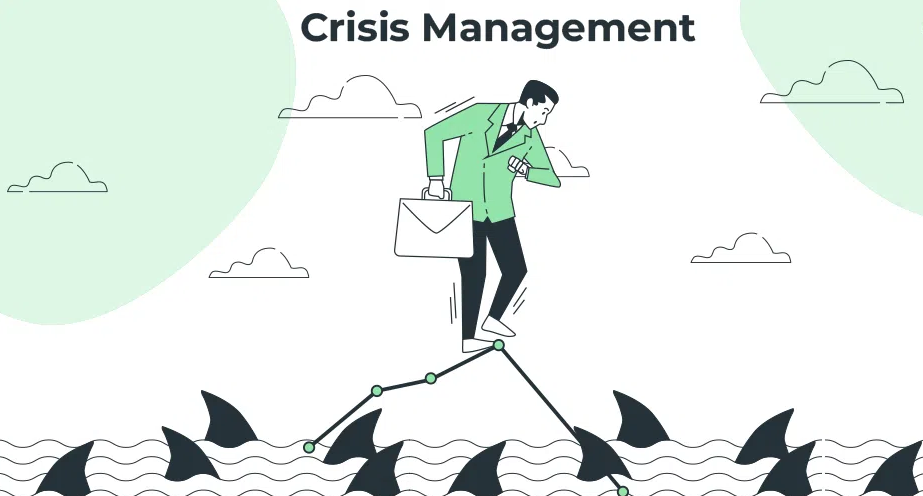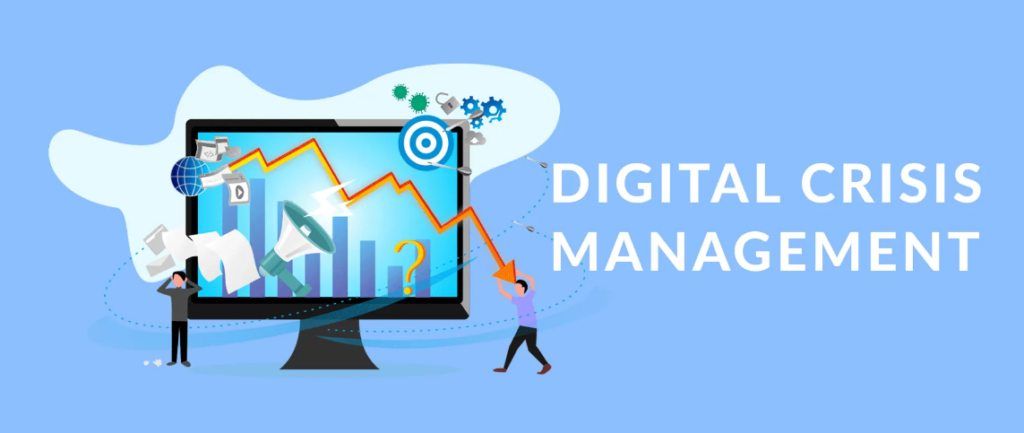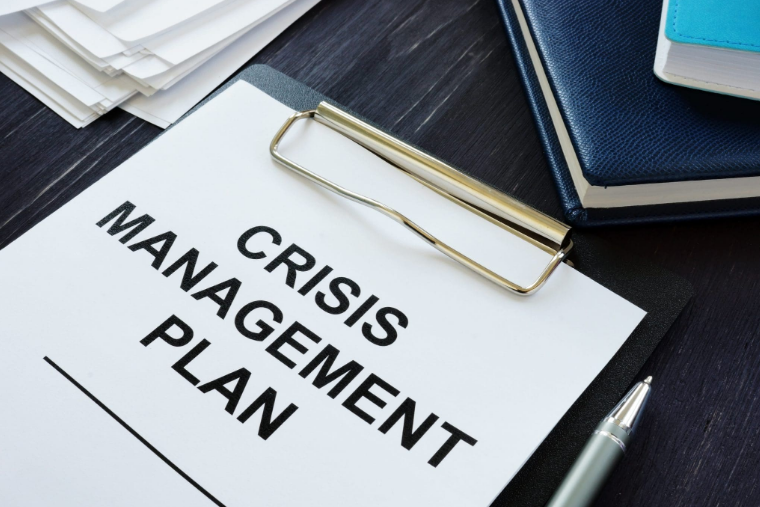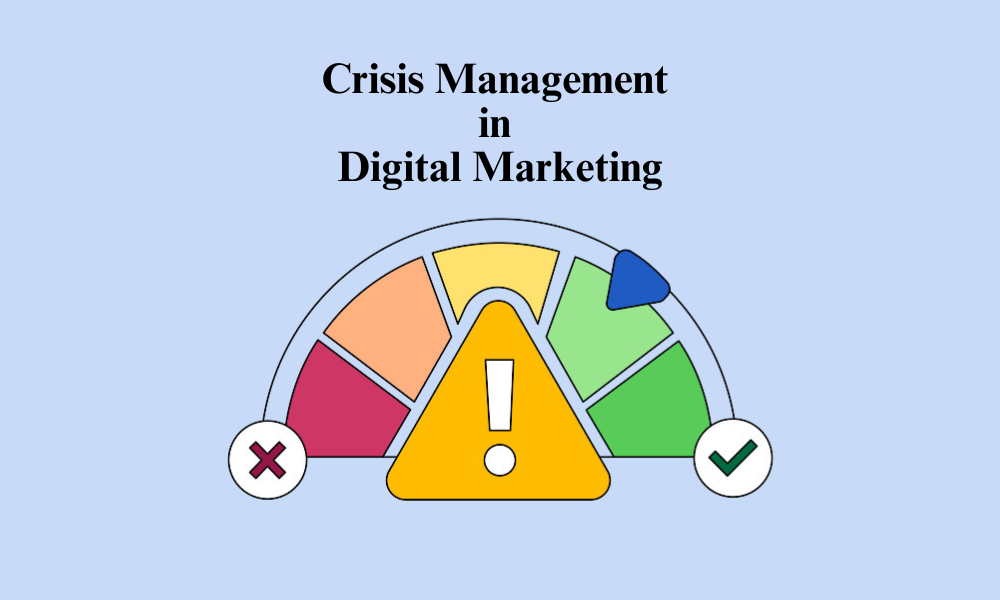In the fast-paced world of digital marketing, companies face various challenges that can ruin their reputation. Effective crisis management in digital marketing is crucial, whether facing public or private crises, to protect your brand reputation.

This article will provide essential details managing crises in digital marketing in 2024, offering strategies to prepare, respond, and recover efficiently.
Table of contents
What are Digital Marketing Crises
A digital marketing crisis can take many forms, from negative publicity and social media backlash to data breaches and service outages. These crises can stem from internal issues, such as employee misconduct, or external factors, like cyber-attacks or customer complaints.

The repercussions of a digital marketing crisis can be severe, affecting a brand’s reputation, customer trust, and financial stability. Quick and effective management is crucial to mitigate these impacts and restore normalcy.
Early Warning Systems
To manage a crisis effectively, early detection is key. Utilizing monitoring tools can help identify potential issues before they escalate. These tools track mentions, comments, and reviews across various platforms, providing real-time alerts on emerging threats. By analyzing trends and patterns in data, you can spot warning signs of a potential crisis. This proactive approach allows for swift intervention, reducing the likelihood of significant damage.
Developing a Crisis Management Plan
A crisis management plan includes clear protocols for different types of crises, designated spokespersons, and a communication strategy. It should outline steps for immediate response, ongoing management, and post-crisis recovery.

Assigning specific roles and responsibilities ensures everyone knows their part in a crisis. This structure facilitates coordinated efforts and efficient execution of the crisis management plan.
Clear Protocols: Establish guidelines for handling various crisis scenarios to ensure a structured response.
Designated Spokespersons: Assign specific individuals to communicate with the public and media during a crisis.
Communication Strategy: Develop a plan for consistent and transparent communication to maintain trust and provide accurate information.
Immediate Response Steps: Define actions to be taken immediately to mitigate the impact of the crisis and ensure safety.
Communication Plans
Effective internal communication is vital during a crisis. Keeping your team informed helps maintain morale and ensures everyone is aligned in their response efforts. Regular updates and clear instructions are essential.

Transparent and timely communication with the public is equally important. Acknowledge the issue, provide accurate information, and outline steps being taken to address the crisis. This approach helps maintain trust and credibility.
| Strategy | Explanation |
| Regular Internal Updates | Frequent communication with your team keeps them informed, engaged, and aligned with the organization’s response efforts. It helps maintain morale and reduce uncertainty. |
| Clear Instructions | Providing clear, concise instructions ensures that everyone knows their role and responsibilities during the crisis, leading to a coordinated and effective response. |
| Transparency with the Public | Being open and honest about the situation helps build trust. Acknowledging the issue and providing accurate information can prevent misinformation and speculation. |
| Timely Information Dissemination | Quick communication helps address concerns and reduces panic. Timely updates show that the organization is proactive and in control of the situation. |
Content Management During a Crisis
During a crisis, it’s important to review and adjust your content strategy. Pause scheduled posts that might seem insensitive and create content that addresses the crisis. This approach shows awareness and sensitivity to the situation. Ensure that all messages across different channels are consistent. Conflicting information can confuse your audience and damage your credibility.

Post-Crisis Analysis
After a crisis, conduct a thorough evaluation of your response. Assess what worked well and what could be improved. This analysis provides valuable lessons for future crisis management efforts.
Use the insights gained from the post-crisis analysis to refine your crisis management plan. Continuous improvement ensures your brand is better prepared for future challenges.
Preventative Measures
Building a resilient brand involves fostering a positive reputation, maintaining high ethical standards, and being proactive in addressing potential issues. A strong foundation can help weather crises more effectively. Regularly update your crisis management plans to reflect new risks and changes in the digital landscape. Staying current ensures your strategies remain relevant.
Conclusion
Effective crisis management in digital marketing requires preparation, quick response, and continuous improvement. By implementing the strategies outlined in this article, you can navigate crises more effectively and emerge stronger. Remember, the key to successful crisis management lies in proactive planning, clear communication, and learning from each experience.
Read more: Adapting to Algorithm Changes: SEO Tips for 2024
FAQs
A digital marketing crisis refers to any significant negative event affecting a brand’s reputation, such as social media backlash, data breaches, or negative publicity.
Utilize monitoring tools to track mentions, comments, and reviews across various platforms. These tools provide real-time alerts on emerging threats.
Influencers can amplify your crisis response message, reach a wider audience, and lend credibility to your efforts, helping control the narrative.
Brands should communicate transparently and promptly, providing accurate information and outlining steps taken to address the crisis. Consistency across channels is crucial.
Conduct a thorough evaluation of your response, identify areas for improvement, and refine your crisis management plan to ensure better preparedness for future challenges.

Alex Mitch
Welcome to my blog! With over 10 years in digital marketing , I’ve seen its incredible impact on smaller businesses. Join me as we explore how digital marketing can grow your audience and boost your business. Whether you’re an experienced entrepreneur or just starting out, you’ll find practical tips and insights to enhance your digital marketing strategies.





